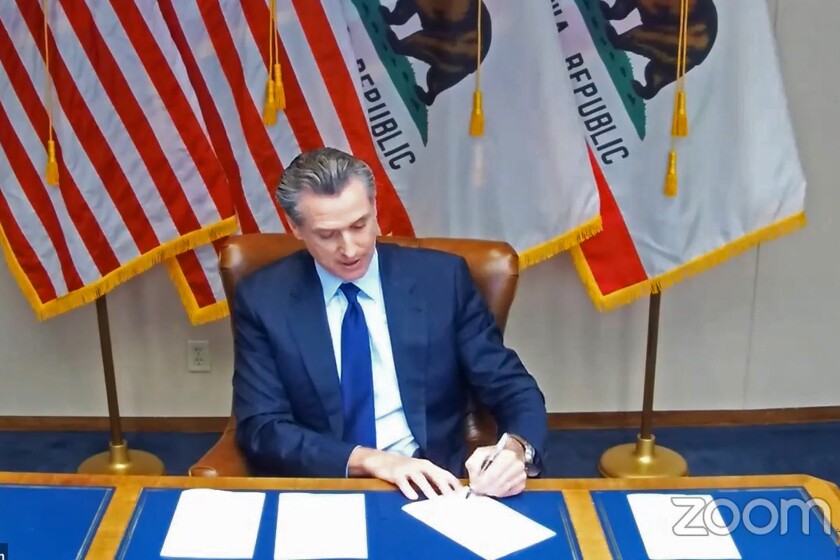#Health #Inusrance #MentalHealth
Gov. Gavin Newsom signed a law on Friday that for the first time in California defines the term “medical necessity” in a move aimed at requiring private health insurance plans to pay for more mental health and drug addiction treatments.
State and federal laws already require health insurance companies to handle mental health treatments the same as physical health treatments. The California Health Benefits Review Program says 99.8% of people enrolled in private health insurance plans have coverage for mental health and substance abuse disorders on par with other medical conditions.
But those laws don’t define what is “medically necessary” to determine which treatments get covered. Because of that, advocates say private insurers often deny coverage for some mental health and drug abuse treatments based on their own restrictive definitions.
The law requires all private insurers to cover medically necessary mental health and drug addiction treatments. The law requires insurance companies, when deciding whether a treatment is medically necessary, to follow the most recent criteria and guidelines developed by nonprofit professional associations, like the American Society of Addiction Medicine.
State Sen. Scott Wiener (D-San Francisco), the author of the bill, said many insurance companies refuse mental health or drug addiction treatment for people “by saying it’s not serious enough.” He said that’s like telling a State 1 cancer patient they can’t get treated until they are at Stage 4.
“We would never tolerate that with physical health. Yet we tolerate it with addiction,” he said.
The California Assn. of Health Plans called it a “misconception” that private insurers wait until people are in crisis before they cover their treatment for mental health or drug addiction. They had asked Newsom to veto the bill, arguing it “recklessly defines medical necessity in a way that will undermine the ability of providers to determine what is clinically appropriate for their patients.”
Newsom acknowledged that pressure during a bill-signing ceremony that was streamed online Friday, saying “not everybody is happy with us.”
“I got a lot of folks that wanted to pull the plug on this Zoom call today, but we’re doing it because we’re zooming into the future,” Newsom said.
The new law takes effect Jan. 1, and it comes as Californians are dealing with a COVID-19 pandemic, a reckoning over racial injustice and massive wildfires that have destroyed homes and businesses while turning the air toxic.
Arthur Evans, chief executive of the American Psychological Assn., says the group’s annual “Stress in America” survey has shown the highest stress levels since the survey began in 2007.
“All of that really emphasizes the need to have access to not only adequate care but to really have access to excellent care just because we know the need is significant right now,” he said.
Joe Parks, medical director for the National Council on Behavioral Health, called the law the first comprehensive reform in the country. He said he hoped it would “encourage other states to fill the gaps that they have with this legislation.”
The bill was one of more than a dozen health-related measures Newsom signed on Friday. The others included one authored by Sen. Jim Beall (D-San Jose) that sets standards for peer support specialists — people who have suffered from mental health or drug addiction and want to counsel others experiencing the same problems. The bill also authorizes the state’s Medicaid program to seek permission from the federal government to cover peer support specialists.
Similar bills have been vetoed twice before by previous governors. It’s one of the final bills authored by Beall to become law as the senator is leaving office this year because of term limits.
“The pandemic has really changed the public’s view on this. We now have a pandemic of despair going on,” Beall said, adding that the bill “adds proven mental health resources when we need it most.”


Comments
Post a Comment